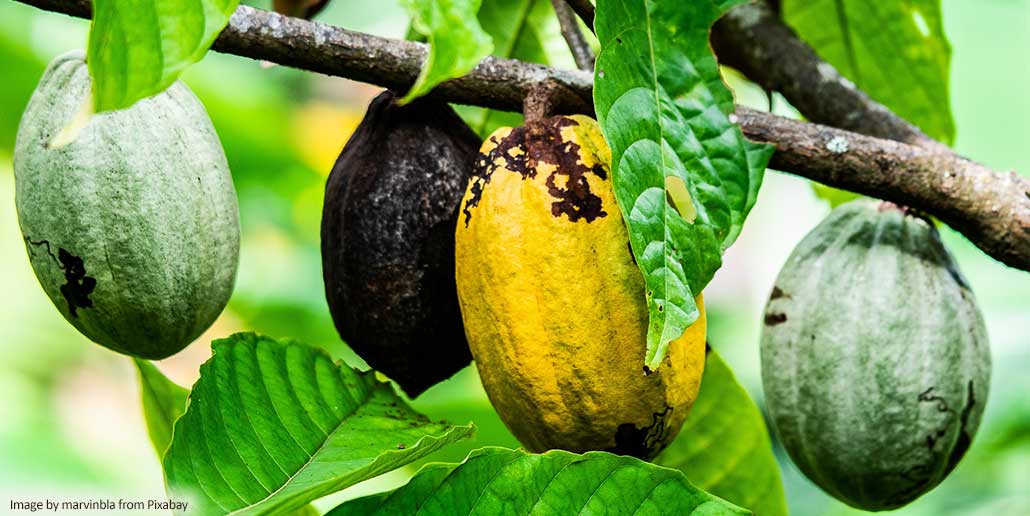- هذا الموضوع فارغ.
- الكاتبالمشاركات
- أبريل 14, 2025 الساعة 5:39 ص #626453

As climate change continues to challenge global agriculture, cocoa farming—largely concentrated in tropical regions—faces rising threats from unpredictable weather, pests, and soil degradation. To secure the future of this vital crop and the livelihoods it supports, there is an urgent need to adopt sustainable cocoa farming practices for climate resilience.
By aligning cocoa production with ecological principles, farmers can build systems that are not only more productive but also better equipped to adapt to a changing climate.
1. Promoting Agroforestry And Shade-Grown Cocoa
One of the most effective strategies for climate-resilient cocoa farming is integrating cocoa trees into diverse agroforestry systems. Shade-grown cocoa under taller trees mimics the crop’s natural habitat, improving microclimates, enhancing soil fertility, and conserving biodiversity.
This approach reduces exposure to extreme weather and pest pressure while boosting carbon sequestration. Agroforestry also diversifies farm income, allowing farmers to harvest additional products like timber, fruits, or medicinal plants.
2. Enhancing Soil Health And Water Management
Healthy soil is the foundation of climate-resilient agriculture. Cocoa farmers can adopt regenerative soil practices such as composting, mulching, and cover cropping to maintain soil structure, retain moisture, and improve fertility.
These methods reduce dependency on chemical inputs while enhancing the land’s ability to withstand droughts or heavy rainfall. Proper water management through techniques like contour planting and rainwater harvesting also ensures that cocoa trees remain productive even under shifting rainfall patterns.
3. Utilizing Climate-Smart Cocoa Varieties
Breeding and selecting cocoa varieties that are more tolerant to pests, diseases, and temperature extremes is key to future-proofing cocoa farming. Many research initiatives are now focused on developing high-yielding, drought-resistant, and disease-resistant cocoa strains.
By planting these improved varieties, farmers can reduce crop losses and improve yields even under climate stress. Combining traditional knowledge with modern breeding techniques ensures the development of locally adapted, resilient planting materials.
4. Empowering Farmers Through Education And Innovation
Effective implementation of sustainable cocoa farming practices for climate resilience requires empowering farmers with knowledge, tools, and access to innovation. Training programs on climate-smart agriculture, integrated pest management, and sustainable land use help farmers make informed decisions.
Farmer field schools and cooperative models encourage peer learning and resource sharing. Additionally, access to mobile apps, weather forecasting, and digital platforms enables better planning and quicker adaptation to climate risks.
5. Strengthening Supply Chain Collaboration And Certification
Sustainability in cocoa farming also depends on fair and transparent supply chains. Certification programs such as Fairtrade, Rainforest Alliance, and UTZ support climate resilience by encoura
ging better farming practices, offering price premiums, and fostering long-term buyer relationships. Collaborative efforts between producers, processors, NGOs, and governments ensure that climate adaptation strategies are widely adopted and supported financially. Building equitable partnerships strengthens both community resilience and global cocoa sustainability.
As climate challenges mount, the adoption of sustainable cocoa farming practices for climate resilience is no longer optional—it’s essential. From agroforestry and improved soil management to farmer education and collaborative supply chains, these practices offer a holistic path forward.
By embracing sustainability at every level, cocoa farmers can protect their crops, secure their incomes, and contribute to a more resilient agricultural future. In doing so, they not only adapt to climate change but also become key players in mitigating its impact.
- الكاتبالمشاركات
- يجب تسجيل الدخول للرد على هذا الموضوع.

